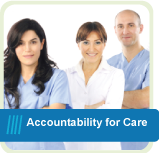Professionalism and Accountability
Key Message

 Professionalism and accountability are at the heart
of patient care. As an Effective practitioner, the Codes and
Standards that regulate the professions make it clear that each
practitioner is personally accountable for their actions and
omissions when interacting with patients, carers, family members
and other members of the team. People in your care must trust you
-- the codes and standards are there to ensure that the public are
protected by competent practitioners.
Professionalism and accountability are at the heart
of patient care. As an Effective practitioner, the Codes and
Standards that regulate the professions make it clear that each
practitioner is personally accountable for their actions and
omissions when interacting with patients, carers, family members
and other members of the team. People in your care must trust you
-- the codes and standards are there to ensure that the public are
protected by competent practitioners.
There are 3 areas of accountability to be considered:
- Personal: focusing on individual responsibility and awareness of your own competence and educational needs.
- Team: focusing on issues such as delegation and the skill mix of staff to ensure that staff are prepared and supported to deliver the necessary care services assigned to the team.
- Organisational: focusing on wider organisational issues such as having the appropriate policies, procedures, reporting and governance arrangements in place that include. for example, whistleblowing and miscommunication.
The codes and standards outline the professional attributes and behaviours of the effective practitioner. In the current climate of intergration it may be useful to familiarise yourself with the codes and standards of other professional within the multi-discplinary team. You'll find these within the signpost section.
What does this mean for the Effective Practitioner?
As a working practitioner you are personally accountable for your actions to your patients, colleagues, your regulatory body, your employer and the law. It is vital that you are clear about what accountability means to your practice and to address any learning and development needs in order for you to evidence the decisions you make.
![]() You can download a copy of
the Professionalism
and Accountability learning activities.
You can download a copy of
the Professionalism
and Accountability learning activities.
Reflection
Remember, recording your reflections is an important part of the learning process. Take time to structure your thoughts, feelings and any future actions on one the forms available in the Reflective Practice section. Click here to visit the page.
In your reflections you could also consider how your learning relates to the Facilitation of Learning, Leadership and Evidence, Research and Development pillars of practice.
Return to topSupplementary Resources
- Duty of Candour elearning resource
- Enabling Professionalism Podcast Sam Abdulla
- Enabling Professionalism Podcast Alex Bann
- Enabling Professionalism Podcast Katie Conlin
Signposts
![]() HPC Standards of conduct, performance and ethics
HPC Standards of conduct, performance and ethics
![]() Enabling professionalism in nursing and midwifery practice
Enabling professionalism in nursing and midwifery practice

